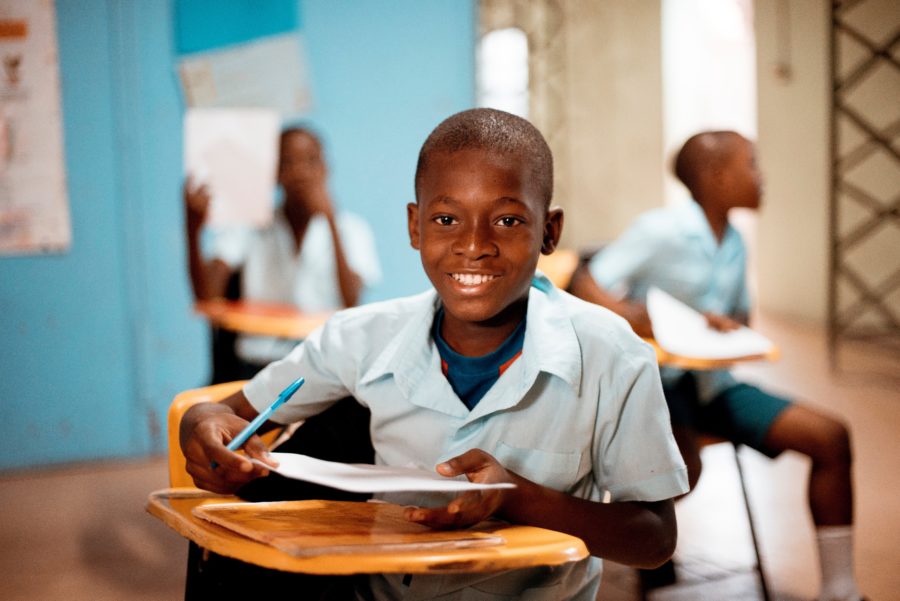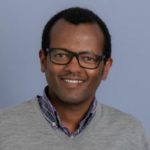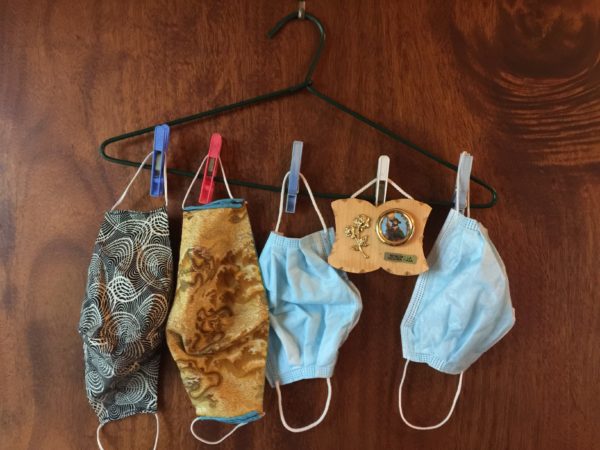Deakin’s Dr Tebeje Molla is determined to help young African refugees find their path in Australian life through success in education.
During the past forty years, Australia has resettled thousands of African refugees. Many are young people who have fled their homes to escape violence and spent years in refugee camps, where they’ve had limited access to education.
When they arrive in Australia, they are in such a disadvantaged social position that it can be difficult for them to make the most of any educational opportunities. And a lack of participation in the education system can lead to limited job opportunities, low income, and social disengagement.
In 2019, Dr Tebeje Molla – a member of Research for Educational Impact (REDI) at Deakin University – was awarded a prestigious Discovery Early Career Research Award (DECRA) aimed at uncovering the barriers that young African refugees face in higher education, and finding ways to improve their chances of participation.
“The proportion of African refugees who transition to higher education within five years of their arrival in Australia is around 10 per cent,” Dr Molla said. “This number hasn’t changed in the past 25 years.”
He added that only one in five African refugees who begin a tertiary degree will manage to graduate.
“I wanted to understand if the low success rate in university was related to academic preparation at secondary school.”
Identifying stumbling blocks to university
Dr Molla’s DECRA project explores the aspirations, opportunities, and experiences of young African refugees within the secondary and tertiary school systems. Although it won’t be completed until January 2022, his preliminary findings have already been published in scholarly journals and media outlets, such as The Conversation.
The findings have made it possible for him to produce a teacher’s guide that will give secondary school teachers the tools they need to help these young people succeed.
The guide outlines five principles and 20 specific strategies of inclusive teaching practices, which can enhance academic engagement and learning outcomes among African students from refugee backgrounds.
Dr Molla says that many African refugees arrive in Australia under traumatic circumstances. They may have endured war, violence and family separation. In addition to this, their formal education may have been interrupted, and the negative effects of their forced displacement could prevent them from fully participating in the classroom.
“These are people who have spent eight to ten years in a refugee camp with little or no education,” Dr Molla said. “But when they come to Australia, they’re put into a class according to their age rather than their educational level.”
Dr Molla added that informational barriers, an inability to access financial support and limited social networks can also prevent African refugees from exploring pathways to university.
“Most African refugees come from non-English speaking countries and limited English language proficiency is a stumbling block. Fragmented educational histories also mean they enter the Australian education system with limited academic skills.”
“The damage is personal and lasting”
These problems are compounded by racist attitudes towards African Australians – which continue to be perpetrated by the media – leading to negative experiences at school and within the broader community.
“I interviewed 44 young African Australians. Many of them told me that, because the public see them as violent, they’re treated differently at school,” Dr Molla said.
He said the explicit racism faced by African refugees – in educational institutions, in public spaces, on social media – has a clear negative impact on their academic engagement.
“And when you’re routinely judged by the actions of others, the damage is personal and lasting.”
School personnel who were interviewed as part of the project mentioned that African students were aggressive and perceived as dangerous. Dr Molla said there didn’t seem to be any understanding of the reasons behind that aggression, and that it may be an expression of frustration or past trauma.
“This raises the question: how well-prepared are teachers to deal with diversity and racial prejudice in the classroom? My aim in writing the guide for educators is to make them aware of the less visible issues that may be causing certain behaviours, and to give them the skills to deal with these appropriately.”
Nurturing students’ resilience, courage and passion
Young African refugees hold high educational and career aspirations. With the right support in high school and university, these young people can thrive.
But early intervention is critical. Dr Molla suggested that tailored educational opportunities should be accessible to newly settled refugees.
“These may include intensive lessons on academic skills, information on alternative pathways to university, and supplementary academic support within schools,” he said.
Dr Molla added that it’s imperative we avoid negative representations of African youth in public conversation, as well as in the media. Incorrectly labelling them as inherently violent, dangerous and unsocial only perpetuates harmful stereotypes, and prevents them from fully participating in the world.
In fact, it’s one of the key causes of school disengagement and early-school leaving for young South Sudanese people in particular.
Instead, we should be encouraging all students to embark on tertiary education, which ultimately boosts the nation’s productivity.
“Despite their hardships, many African refugee students are successful,” Dr Molla said. “They overcome many obstacles to complete tertiary qualifications. They have resilience, courage, passion and a desire to give back to the country that has become their home.”
Dr Tebeje Molla is a Discovery Early Career Research Award-winning (DECRA) Research Fellow and a member of Research for Educational Impact (REDI) at Deakin University.
Discover more about REDI in our interview with the centre’s Director, Professor Julianne Moss.




